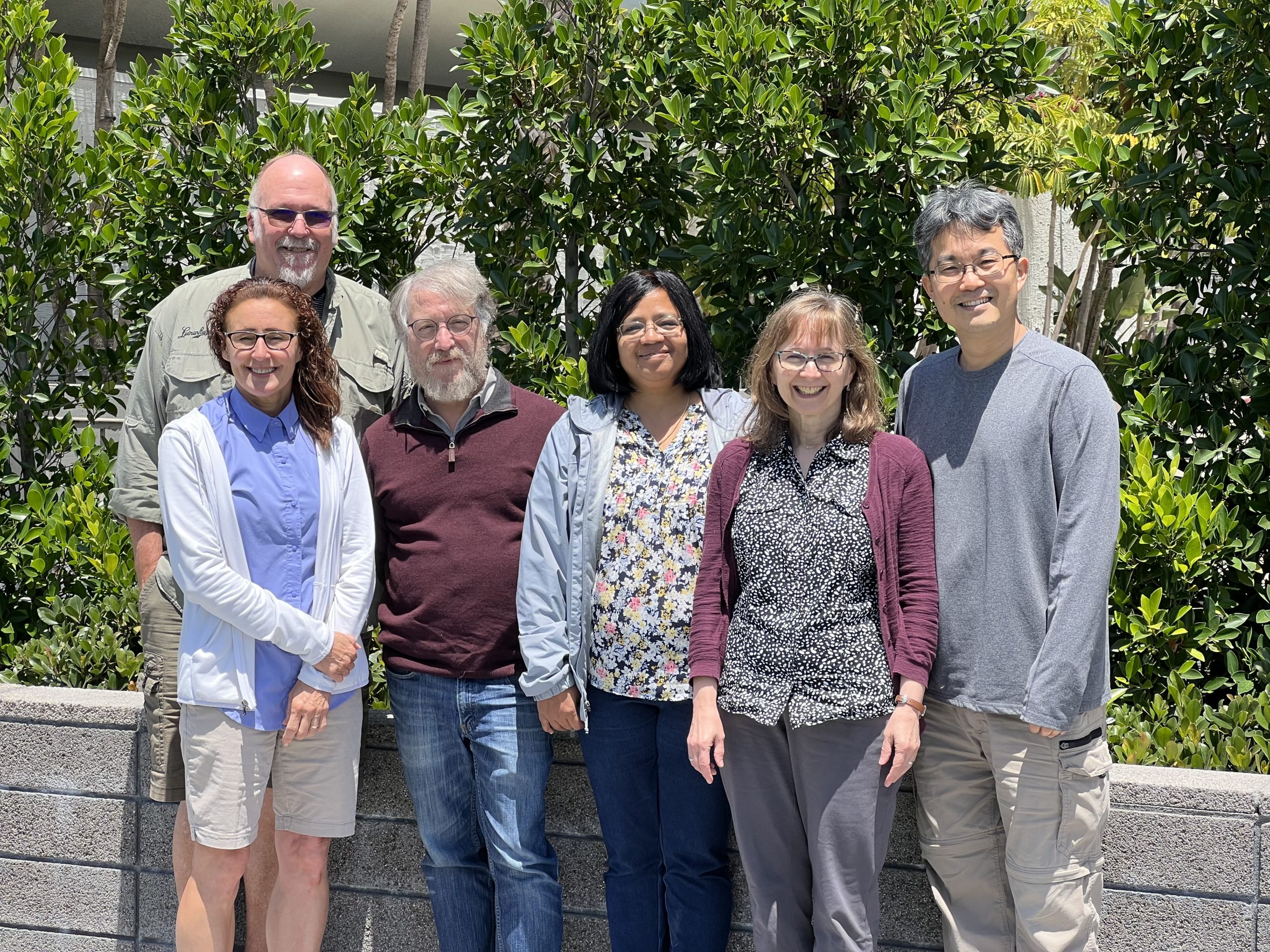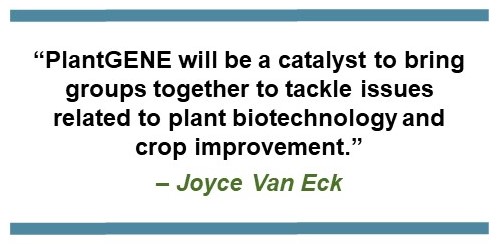News
PlantGENE to catalyze plant biotechnology improvement

The PlantGENE steering committee at the Society for In Vitro Biology meeting in San Diego, CA. From left to right: Heidi Kaeppler, Bill Gordon-Kamm, Wayne Parrott, Veena Veena, Joyce Van Eck, Keunsub Lee. Nigel Taylor is absent from the photo. Image provided.
As the global population booms and climate change continues, improving crops to produce more food, use less resources like water and pesticides, and survive harsher environments will be needed to feed the planet sustainably. For example, fungal diseases are increasingly crippling production of crops like coffee, chocolate and bananas. Improving the crops to be resistant to disease could be essential to their survival.
Biotechnology is key to crop improvement, enabling researchers to determine the functions of genes, which can then be bred into crops using traditional methods or modern engineering methods. Unfortunately, there is a big bottleneck: There aren’t enough service providers to deliver genetically engineered plants to the research community, nor are there enough scientists trained to engineer the plants.
“The global capacity to produce plants using genetic engineering is critically short of demand,” said Joyce Van Eck, Associate Professor at the Boyce Thompson Institute. “There are too few facilities and people with the expertise to perform this work, which is having a negative impact on plant science research worldwide.”
To overcome this bottleneck, Van Eck was recently awarded a $500,000 grant (IOS 2210962) from the U.S. National Science Foundation (NSF) to create the Plant Genetic Engineering Network Research Coordination Network (PlantGENE).
PlantGENE is a network of plant biotechnologists that will work together to facilitate the sharing of technology, knowledge and protocols. The community-driven initiative also will have a website to serve as a repository of protocols, and they will host workshops and masterclasses to train people on how to engineer different species.
“PlantGENE will be a catalyst to bring groups together to tackle issues related to plant biotechnology and crop improvement,” says Van Eck. “The network will help increase capacity for plant genetic engineering, coordinate facilities to work together, and train new scientists who can become experts in plant genetic engineering techniques.”
 “Ultimately, PlantGENE will increase capacity for delivering genetically engineered plants to the research community,” added Van Eck, who is also an adjunct assistant professor in the College of Agriculture and Life Sciences at Cornell University.
“Ultimately, PlantGENE will increase capacity for delivering genetically engineered plants to the research community,” added Van Eck, who is also an adjunct assistant professor in the College of Agriculture and Life Sciences at Cornell University.
A coordinator for PlantGENE, to be located at BTI, will work with facility managers at all of the different facilities to facilitate communication among the network, universities, private sector and international organizations.
“This person will make BTI the hub of a network coordinating training and workshops to get more people doing plant biotechnology,” says Van Eck.
She is currently accepting applications for the position.
Diane Jofuku Okamuro, program director at NSF, said PlantGENE aligns with the agency’s history of supporting research on plants, their genomes, and their role in our ecosystems and food systems.
“Connecting researchers with tools to test and validate the function of genes is critical to our ability to translate agriculturally relevant plant research into applications as demands on crop production increase and our climate changes. NSF is proud to support PlantGENE in doing that,” said Okamuro.
The PlantGENE steering committee includes Van Eck, Veena Veena and Nigel Taylor of the Danforth Plant Science Center, Heidi Kaeppler of the University of Wisconsin, Keunsub Lee of Iowa State University, Wayne Parrott of the University of Georgia, and Bill Gordon-Kamm of Corteva Agriscience.


